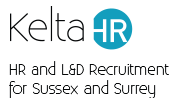Mar 10th 2021
What role will HR play in any future disasters?
What role will HR play in any future disasters?
If this pandemic has shown us anything, it’s that businesses need to be prepared for anything; natural, man-made, national or global disasters.
But what we’ve also learned is the major role HR can and must play in both preparing and managing the way through it, if the worst happens.
Because planning, solving problems, delivering seamlessly to customers, all depend on people.
DISASTER PLANNING JUST BECAME A HIGH PRIORITY
If businesses hadn’t prioritised or even thought about disaster planning before, they certainly will now. And the nature of planning is likely to change. Some businesses may have had fairly robust IT and systems disaster/contingency planning in place, but few will have prepared for the possibility of lockdowns, total shutdowns, human loss of life and a long-term impact on mental health and well-being.
If you’re an HR professional, the reason you’ll be so key to this is that you sit at the heart of an organisation, you see the big picture and you’re critical to performance in every aspect of delivery.
FLEXIBILITY AND PROBLEM SOLVING
Disaster planning relies on flexibility, because as much as you may think you have planned for every eventuality, as we have seen, you never know what curve ball is coming.
Flexibility may relate to;
-Making sure the core skills the businesses need to operate are not concentrated in just one person or team
-Being able to shift operations on and offline, operate from different venues and equipping staff with the skills to do this
-The ability to move staff around to cover sickness or other challenges
-Looking at the capability of the business to move to ‘hybrid’ working – a mix of office/workplace and home
-Considering what technology may help support more productive and flexible working
-Reviewing and updating policies and risk assessments in line with new guidance and regulation from government relating to working practices and vaccine requirements for example.
WELLBEING AND RESILIENCE
Looking after the workforce’s mental health and well-being in ‘normal’ times is not only the right thing to do, but it will be an investment in creating a more robust and resilient workforce in the face of challenging times.
Building resilience in organisations has become a bigger priority in organisations because resilience may be the difference between maintaining business operations, customer service and delivery, or failing to in the face of a disaster.
This may include;
-Reassurance and vigorous implementation of health, safety and hygiene in the workplace
-A strong, clear and genuine business-wide commitment to the mental health and well-being of all staff
-Integrating, encouraging and promoting health as a value, through benefits like cycle to work schemes, health insurance, gym memberships
-Creating a culture where vulnerability and expressing concerns or worries is embraced not brushed under the carpet, and doing this from leadership right through the organisation
-Removing blame cultures and suspicion, encouraging trust and openness
-Enabling more flexible working and focusing on productivity and outcomes as measures of performance rather than hours at a workstation.
RESCOURCING
Disaster planning means not just having the right processes and systems in place, but the right people and culture. This global pandemic has opened up the possibilities of new talent for some businesses, with remote working meaning the talent pool is not limited by proximity to a specific location. But it has also highlighted the need for certain skills.
An evolved approach to resourcing may include;
-Looking not just at the skills the business needs now, but those in the case of a sudden change e.g. fast shift to digital, greater reliability on technology
-Opening up opportunities to those with beneficial skills, but who need flexible work patterns outside the F/T 9-5 such as parents/carers
-Looking at culture fit and personality as well as skills, such as flexibility, problem-solving, resilience, teamwork – depending on the needs and goals of your business
-Streamlining processes enabling you to recruit faster should this be needed
-Considering how you handle redundancy for example outplacement services.
COMMUNICATION AND ENGAGEMENT
A big challenge of the pandemic has been how leaders communicate with their teams in difficult times – and success will in part have depended on how good communication was in the business already.
For a business to survive and succeed, leaders need their people ready and willing to step up, adapt and stay the course through the tough times.
Improving communication could include;
-Surveying existing teams on their communication experience through this pandemic and how it could have been improved
-Plans in place in how to communicate even more effectively with remote workers or those spread over multiple sites
-Communication plans for anyone out of the business for a long time e.g. through sickness or maternity or other reasons
-Ensuring a variety of channels exist for communication around the business including face to face, one to one, roadshows and online, to keep everyone in the loop and engaged in the company vision.
For HR, the role in future pandemic and disaster planning is clear. It’s a fundamental one which touches almost every aspect of business operations.
Back to the lastest news

.png)
